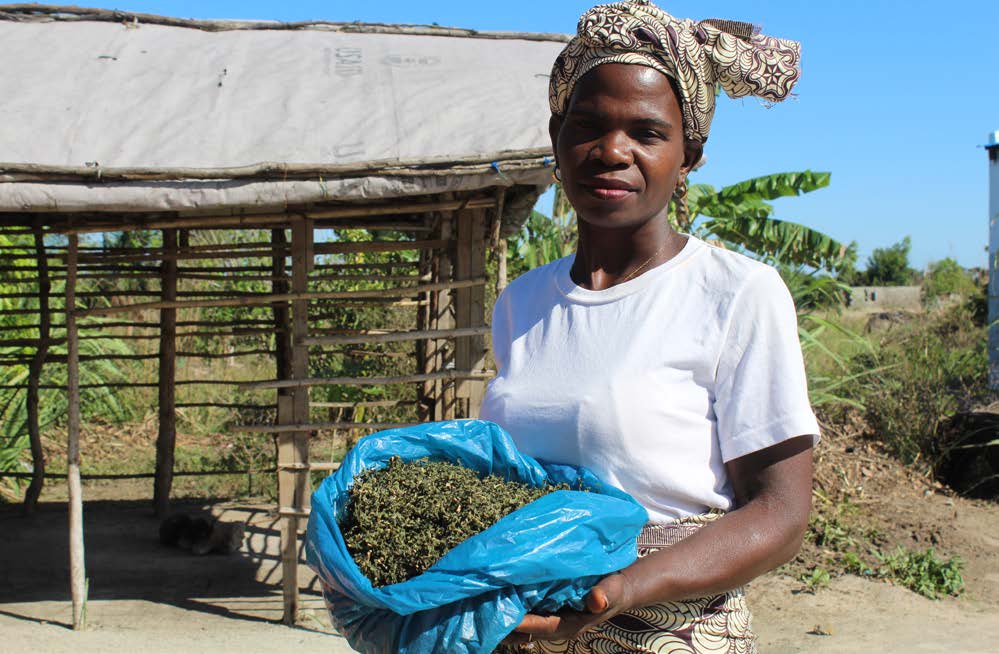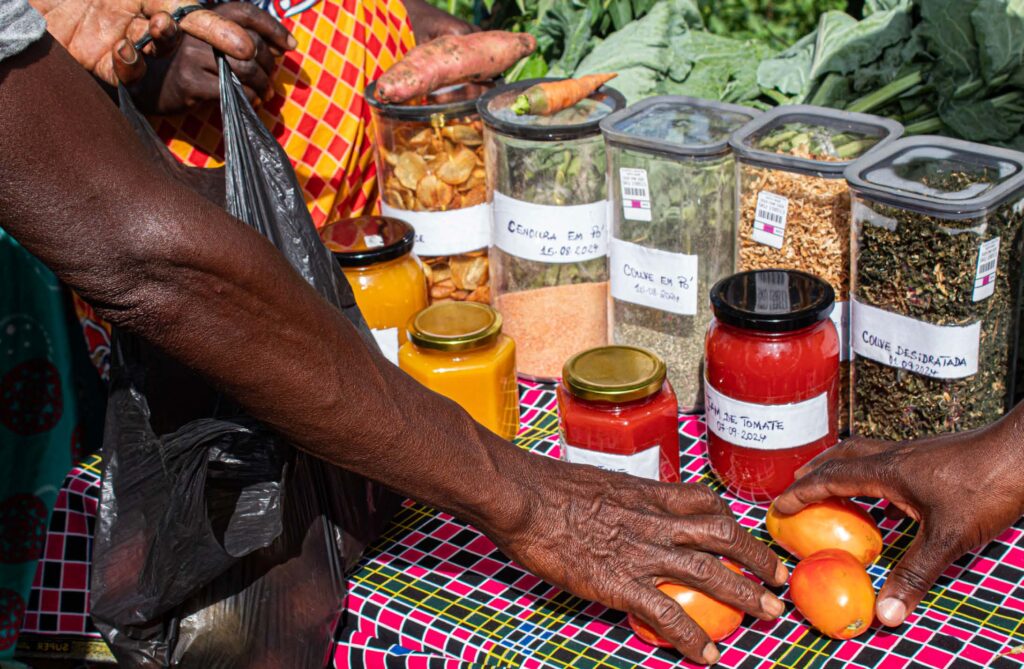
Before joining the Triple Resilience (3R) program in Mozambique, Florencia Batista Mapureze, a resident of the Mandruzi Resettlement in Dondo, faced significant challenges as a farmer.
Despite her hard work, limited awareness and a lack of resources often led to post-harvest losses, leaving Mapureze’s family vulnerable during times of scarcity. The frustration of seeing crops go to waste was a frequent source of despair.
“Our produce would spoil in the fields, and we didn’t know how to process and conserve it. It was devastating to put in so much effort only to lose it all because we lacked the knowledge to make it last,” Mapureze shared.
This is a common struggle for smallholder farmers across Mozambique. Post-harvest losses are extremely high in the country, averaging around 30% of production. As a result, farmers have little room for flexibility in the market and are often forced to sell their produce immediately after harvest, when prices are at their lowest.
Fortunately, Mapureze’s circumstances began to change when she became a partner of the 3R program, through which she was introduced to practical skills and innovative techniques that transformed her approach to farming.
Among the most impactful lessons were post-harvest handling and value addition, which taught Mapureze how to process kale, cassava, carrot, and cabbage into shelf-stable products, such as powdered kale.
“This knowledge has been life-changing. I can now preserve our produce for months, ensuring that my family has food even in difficult times.”
Florencia Batista Mapureze

The program’s impact did not stop there: 3R also provided Mapureze with support to access finance opportunities through village savings and loan associations, enabling her to invest in better farming inputs, including high-quality seeds and fertilizers.
These inputs have helped Mapureze improve her yields, ensuring a steady supply of food for her household as well as surplus to sell for income.
“We’ve also started selling some of the processed products, which has brought in much-needed income,” she explains.
Mapureze’s journey exemplifies the broader vision of the 3R program, which seeks to empower smallholder farmers with the tools, resources, and knowledge needed to overcome systemic barriers. By equipping communities with the means to adapt and grow, the program is driving long-term resilience and prosperity across Mozambique.
The Triple Resilience (3R) program (2023-2027) aims to build and strengthen social, climate, and economic resilience in Mozambique by accelerating the shift from humanitarian aid to long-term sustainable development. 3R is funded by the Embassy of Sweden and is implemented by IFDC in partnership with Norwegian People’s Aid (NPA), Associação Kwaedza Simukai Manica (AKSM), LevasFlor Foundation, União Provincial Dos Camponeses De Manica (UCAMA), União Provincial de Camponeses de Sofala (UPCS), and the International Economic Cooperation Institute (ICEI).




